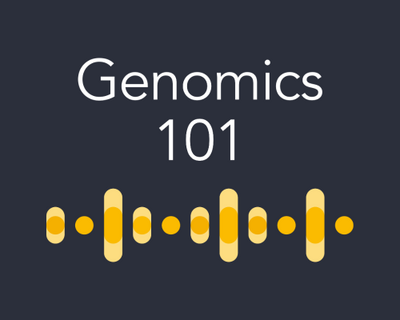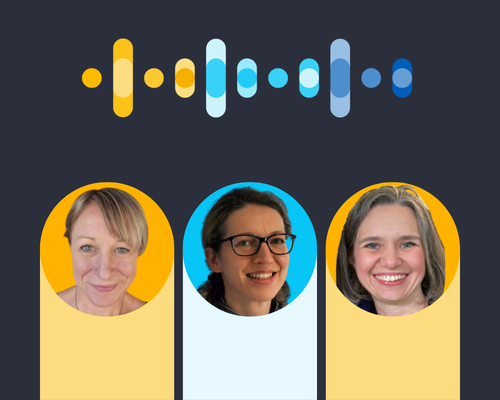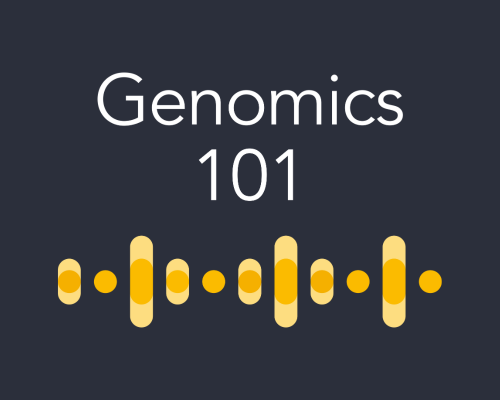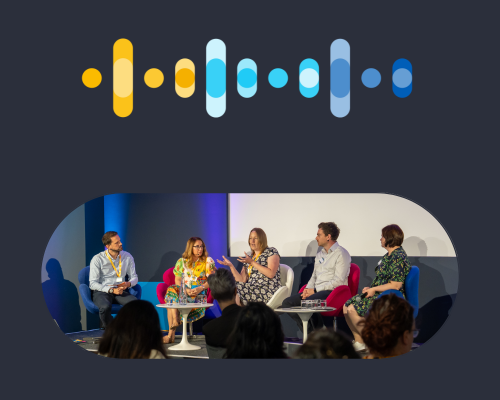
What do parents want to know about the Generation Study?
In this explainer episode, we’ve asked Mathilde Leblond, Senior Design Researcher for the Generation Study at Genomics England, to answer some frequently asked questions that we received from parents who we engaged with for the design of the study.
You can hear more information about Generation Study via the study's official website and in our previous podcast episodes:
- How has design research shaped the Generation Study?
- Which conditions will we look for initially in the Generation Study?
You can also find a series of short videos explaining some of the common terms you might encounter about genomics on our YouTube channel.
If you’ve got any questions, or have any other topics you’d like us to explain, feel free to contact us on [email protected].
You can download the transcript or read it below.
Naimah: You may have heard about the Generation Study. This research study led by Genomics England in partnership with NHS England will sequence the whole genomes of a hundred thousand newborn babies and will look for more than 200 rare conditions that could be treated in the NHS in early childhood.
The study seeks to improve how we diagnose and treat rare genetic conditions to enable babies and families to have better outcomes. Today I'm joined by Mathilde Leblond, who leads design research for the Generation Study, and will be answering some of the frequently asked questions that we receive from parents who we engaged with for the design of the study — the same questions that expectant parents at participating hospitals might have before deciding if they want to take part.
So first of all, Mathilde, can you tell me a little bit more about your role?
Mathilde: Hello. So, I'm a design researcher. My role is to support my colleagues, understand our users deeply so that we can create experiences that are as positive and seamless as possible.
So today we'll talk about the parents who are the ones invited to take part in the Generation Study, but our users also include the midwives who are approaching them and taking blood samples. The clinical scientists who are interpreting the results and the specialist paediatricians will be contacting the parents if a condition is suspected, and even many more users actually.
So, we did a lot of research prior to launching to shape the Generation Study, and now that we're live, we continue doing more to keep improving the experience.
Naimah: Okay, so can you give us a bit of background? How did you engage with parents in this study?
Mathilde: Yeah, so today we've involved over 150 pregnant and recent parents in our co-design sessions.
And these sessions were slightly different each time with different topics and exercises, but generally we spend around 90 minutes with one parent. And we asked them to bring someone who helped them make decisions about their baby during their pregnancy. So that meant that we had their mums, their sisters, their husbands, their wives and friends as well, taking part and discussing the Generation Study with us.
During that time with them, we would test our materials. We listened out to what's important to them and what they asked about, and we got them to show us what would work better for them so that we could then shape the materials around that.
Naimah: So you can find out a bit more about why it's important to involve users in co-design in our podcast ‘How has design research helped shape the Generation Study?’, which is available on our website.
So, we have a list of frequently asked questions from some of the parents, and I wanted to post some of them to you today, Mathilde. So first of all, one of the questions was, why should my baby take part in this study?
Mathilde: Yeah, I mean, that's really the key questions that all parents are asking themselves before they even spend any time finding out more about the Generation Study. And our materials do reflect that. So what tends to matter most to the parents we spoke to, is that there's a small chance that their baby may benefit directly from taking part because if a condition is suspected, they'll be invited for further specialised tests within the NHS, and they could receive treatment much sooner than if we had waited for the symptoms to develop and for a diagnosis to come, which can sometimes take years for some rare conditions. But for a large majority of the babies, 99%, they will have no condition suspected and so their involvement really is more altruistic. Taking part means that their parents agree to share the baby's healthcare records on an ongoing basis and their genome with researchers who can then look at this together with information from thousands of other babies and patients to help improve our understanding of genes and health.
So taking part in the Generation Study also means that you might help uncover some life-changing early treatments for babies in the future. And finally, something that's super important to us is that people from Black, Asian and other minority ethnic communities have historically been underrepresented in this type of research. So, we're working hard to make the Generation Study as inclusive as possible to help genetic testing and treatments be improved for everybody in the future. So, there's many reasons to take part in the Generation Study.
Naimah: You mentioned the word altruistic there. Can you tell me what that means?
Mathilde: Yeah, so that's really to help society. They may not get benefits within their own lives or within their own family, but somebody somewhere will benefit from it in the future. And that's what altruistic means.
Naimah: Thank you. So, some parents might also ask, will this test tell me every illness that my baby might have now and in the future?
Mathilde: No. So first of all, we're still learning a lot about how genes work, how the environment affects them, and there's also many conditions that we still don't understand very well. So those are not in. Of the conditions that we do understand quite well. We did a big piece of public engagement in 2022 to try and decide which ones to include as part of the screening.
And while some parents told us that they would want to know every single thing in advance, a lot of parents were worried about how much it would raise their anxiety to find out about a potentially incurable condition at such a fragile and beautiful moment when you have a new baby. So, for this reason and many other reasons, we've decided to proceed really cautiously so that the conditions that we'll be testing for have been chosen to reflect 4 key principles. And you can find them on the website. But the main gist is that we'll only be looking for conditions that normally start in childhood, first few years of life. So, nothing around Alzheimer’s, nothing around breast cancer, for instance. And another principle is that there's has to be already existing pathways within the NHS so that the babies can be seen and treated quickly. So, we're only including those conditions that start in childhood, and something can be done about them early on.
Naimah: You can also listen to our podcast on our website 'Which conditions will we look for initially in the Generation study?’ to find out more about the list of 200 conditions, which we'll look for in the study and how this may change over the course of time as new evidence emerges.
So, another common theme with the parents was that they are aware that the NHS is already under a lot of pressure, and they asked if my baby is flagged for more testing, will I really be able to get the support I need from the NHS in time?
Mathilde: Yeah, that's a question that we've heard a lot actually, and it really makes sense considering the media coverage that's coming out daily, and that's been really in the papers for months now about how stretched the NHS is.
We've worked really closely with the NHS to ensure that all the babies that have a condition suspected as part of the Generation Study can be seen as soon as possible. So, our team has been in touch with specialists from across the country to understand how ready they are to take in those babies, to run confirmatory tests and potentially start treating them sooner.
So, it's been really key for us to make sure that we're not flagging up a baby for more testing and they just have to wait for months before they can get extra tests and attention. And that's so important for us to get right. In the long term, we hope that screening could actually relieve some pressure from the NHS if we can get babies to the correct doctor earlier on while their health is still good.
Naimah: Some parents might also ask, this research sounds very new. Is my baby going to be a Guinea pig?
Mathilde: Those two words, Guinea pig, came up again and again in almost every single session that I've had with parents, it was almost a freaky coincidence. I find that most parents use this wording to mean, will we inject anything into their baby or give them any medication that has not been tested and approved?
And the answer to this is no. What does happen is that when a baby's born after the birth, we need to take a few drops of blood so that we can create their genome, their DNA, and normally we'll take a bit from their umbilical cords, and that is happening in most of the birth at the moment of the participants.
But if for any reason we couldn't take that, maybe it was a complex labour, there was some emergency. The parents are asked a bit later if they would allow for a bit of blood to be collected using the heel prick methods. And that's a method that's been used in the babies in the UK within 5 days of birth for many, many years. And it looks for 9 conditions, as a current NHS test. So that's definitely safe. And usually when parents find out that that's all there is to it, they feel a lot more comfortable. A little disclaimer here because we mentioned the 5-day heel prick, while we use a similar method to get the blood, if we couldn't get blood from the umbilical cords, it's important to see that this is a different test, it's a proven test within the NHS which says many lives. So, parents who choose to take part in the Generation Study are very much encouraged to also agree to the day 5 newborn screen screening.
With all of that being said, this is a new research study and there are some uncertainties. Most of them revolve around how quickly we can process the results, how will parents and the NHS react to receiving these results so early, but also will this be inclusive for everybody? And might we inadvertently create more inequities? We're actively listening to sites now that we have opened and we have a survey that our participants can fill out, and we're working with UCL to help evaluate the impact of the Generation Study in an unbiased way.
Naimah: Okay. And another frequently asked question, if you have my baby's DNA, does that mean that you can clone them?
Mathilde: Cloning comes up regularly in our interviews with parents, though sometimes I found that people can feel a little bit silly asking about it, but actually it's a quite big topic that's top of mind when we talk about DNA and genomes.
Not least because of how much it comes up in sci-fi, it's just everywhere. So first of all, about cloning, it's important to remember that it's completely illegal, but it also has a whole host of other ethical concerns, which we don't take lightly at all here at Genomics England. So, the research that our study will support will be firmly within the bands of law and ethics and will only focus on discovering answers to questions that could help the health and wellbeing of babies, and really all of us in the future. No cloning involved.
Naimah: Okay. And then the final question, how can I take part in the study?
Mathilde: We've already opened in over 10 hospitals in England, which we are very excited about and we're actively working on opening more. You can visit our website, www.generationstudy.co.uk, to see an up-to-date list of hospitals which are currently taking part, and to read more about what taking part entails. Then you can contact your local research team to log your interest if you're planning on giving birth in one of our partner hospitals, and they'll be in touch to let you know about the next steps.
Naimah: That was Mathilde Leblond answering some of the frequently asked questions from parents that we have engaged with for this study. If you've got any questions or you'd like to hear more, please contact us at ge-[email protected], or you could find out more on the Generation Study website www.generationstudy.co.uk.
Thank you for listening.


